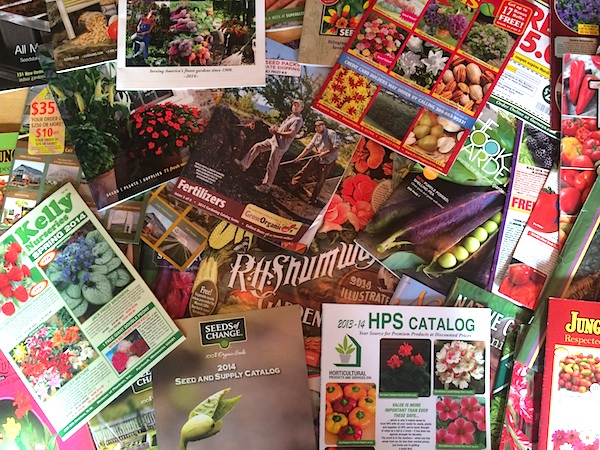I’ve said it before, and I’ll say it again: Gardening is the marriage of agony and ecstasy. For every sweet tomato you slice into each summer, there are likely bitter failures that haunt you, whether it be beets that never came to be or an infestation of cabbage moths that dashed your sauerkraut dreams. On top of all the work and the worry, contemporary gardeners now face another challenge: Avoiding Monsanto. In a nutshell, Monsanto is the company that brought you Round Up, the herbicide that, in my opinion, is terribly dangerous and has given rise to a new breed of super weeds. (We use a flame weeder at our home, and it is vastly more effective and allows my husband to fulfill his Rambo fantasies.) Monsanto is also the monopoly behind genetically engineered seed.
Genetically engineered seed has its defenders, although I don’t personally know any of them. However, I do know scores of people who believe genetically engineered seed compromises our health. And, a small army of gardeners and farmers believe GMOs compromise biodiversity and are harmful to our fragile ecosystem. An excellent article on Organic Authority states, “Genetically modified organisms contaminate existing seeds with their altered material, passing on modified traits to non-target species.” To illustrate this point, the article notes, “Monarch butterflies have also died after their favorite food, milkweed, was cross-pollinated from Bt corn which rendered it toxic to the endangered species.” In other words, GMOs are fucking terrifying and threaten to eradicate everything that home growers are trying to accomplish.
As with all things, when a small, authentic movement takes root and begins to effect change, the evil empire (because there is always an evil empire, right?) tries to figure out how to co-opt the movement for monetary gain by diluting definitions and changing the rules. It happened with organic certification, the term ‘artisanal’, craft beer, and a million other things, and now it is happening in backyard farms and gardens everywhere. Although Seminis, a popular seed division of Monsanto, states, “Seminis does not offer genetically modified vegetable seeds for the home garden market,” I’m pretty sure we don’t want to support a division of a company that is wreaking large-scale havoc on commercial farms throughout the world. Further, if Monsanto does intend to be fully transparent to home gardeners, why has the page that would provide a comprehensive list of seed companies selling Semini seeds disappeared?
In the absence of a complete and accurate list of companies who do purchase seed from Monsanto and any of its divisions, there is a great deal of speculation as to which companies are owned by Monsanto or that sell Monsanto seed. Several companies, from Burpee to R.H. Shumway, have had to publicly come out and defend themselves against accusations that they are owned or affiliated with Monsanto (It should be noted that Burpee has admitted, “We do purchase a small number of seeds from the garden seed department of Seminis, a Monsanto subsidiary, and so do our biggest competitors. We do NOT sell GMO seed, never have in the past, and will not sell it in the future.”) Some of the finger-pointing stems from the general public’s misunderstanding of hybrid varieties of vegetables and genetically engineered varieties. That’s a whole other discussion, however. In the interest of integrity, then, rather than discuss companies that are or may be in cahoots with Monsanto, let’s just all buy our seed and supplies from organizations that have taken the Safe Seed Pledge!
The full list is online, broken down state by state, by the Council for Responsible Genetics. I receive hundreds of seed catalogs each year, so in the interest of greater ease, I created a Google doc that lists alphabetically all the companies who have taken the Safe Seed Pledge. All information is sourced directly from the Safe Seed Pledge page. If you note something that is incorrect, please let me know.
The terrific part of this exercise was learning that I have inadvertently largely avoided doing business with companies who have not taken the Safe Seed Pledge. Also, I discovered, literally, hundreds of small seed companies that I am excited to patronize. It’s my hope that more companies will reassess their business practices and stand with the Council for Responsible Genetics.
To do my small part, tonight any questionable catalogs will hit the recycling bin, and we’ll place our seed orders in the morning with companies who have taken the Safe Seed Pledge.

